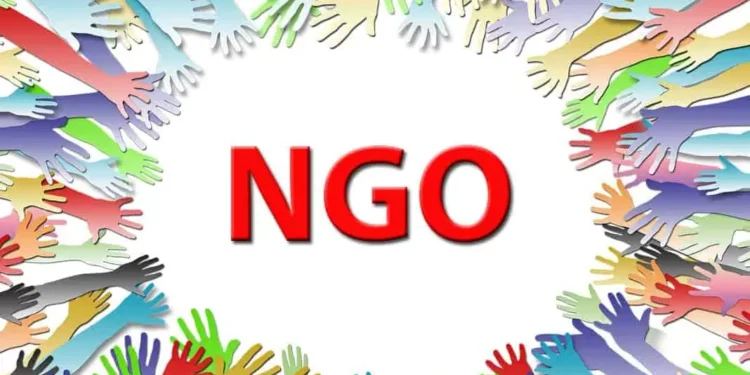Introduction
NGOs are crucial and active in Canada’s social fabric. Including organizations committed to social concerns, environmental difficulties, health, education, and humanitarian relief, this sector helps solve social problems. This detailed post will discuss Canada’s nonprofit and NGO sector’s importance, sectors, and personal and professional development options.
The Importance of Canada’s Nonprofit and NGO Sector
The nonprofit and NGO sector in Canada is vital to the nation’s economy and society, having numerous essential aspects:
Social Impact
These organizations fight poverty, healthcare, environmental degradation, and human rights. Their work directly affects Canadians’ health and quality of life.
Canada’s nonprofit industry is essential to the economy. It creates jobs, boosts GDP, and produces revenue via fundraising and contributions.
Volunteerism
Millions of Canadians volunteer for charitable and NGO projects. This industry needs devoted volunteers to succeed.
Innovation and Collaboration
Nonprofits and NGOs foster new solutions to complicated challenges. Government agencies, industry, and other sectors often work together to accomplish objectives.
Canadian Nonprofit and NGO Fields
The Canadian nonprofit and NGO industry covers several disciplines committed to social, environmental, or humanitarian objectives. Key fields in this sector include:
Health and Wellness
Organizations in this sector promote physical and mental health, assist disease patients, and advocate for healthcare access and equality.
Education and Youth Development
Nonprofits and NGOs in this sector increase education, mentoring, and youth empowerment.
Social Services
These organizations help refugees, immigrants, and people without homes with addiction treatment and prevention of homelessness.
Environment and Conservation
Environmental sustainability groups fight climate change, conserve habitats, and promote eco-friendly practices.
Human Rights and Social Justice
NGOs in this category promote civil rights, social justice, and equality, frequently focused on race, gender, and LGBTQ+ rights.
Arts & Culture
Nonprofits in this area improve Canadian society by promoting creative expression, cultural preservation, and arts access.
Disaster relief, development aid, and support for disadvantaged populations are common among Canadian NGOs.
Canadian Nonprofit and NGO Opportunities
The Canadian charity and NGO industry provides several options for those who want to improve society. These opportunities fall under these categories:
The industry needs program managers, social workers, fundraisers, media experts, and administrators. Positions vary in skill and experience.
Volunteering
Volunteering is essential for sector involvement. It lets people volunteer their time, talents, and enthusiasm for a good cause while learning.
Many charity and NGO organizations provide internships and entry-level opportunities for newcomers. These positions include training and mentoring.
Experienced professionals may define organizational initiatives and have a more significant effect as executive directors, program directors, and board members.
Consulting and Services
Nonprofits and NGOs may hire consultants or advisers with legal, financial, or marketing experience.
Money and Grants
Nonprofits that give grants and money also provide chances for grant program managers and philanthropists.
Learning and Skills
Education and skills may help nonprofit and NGO workers succeed in Canada:
Related Degrees
Many industry jobs demand a particular education. Relevant degrees include social work, public administration, nonprofit management, public health, and environmental studies.
Soft Skills
Empathy, communication, collaboration, flexibility, and problem-solving are crucial. Effective involvement with beneficiaries, volunteers, and sponsors requires specific abilities.
Fundraisers should learn donor development, grant writing, event organizing, and financial administration.
Project Management
Program managers must know project management methodologies to execute projects efficiently.
To understand and respect other cultures, those working with varied populations, whether locally or abroad, should achieve cross-cultural competency.
Collection, analysis, and interpretation of data are increasingly important for organizations wanting to quantify their effect and make data-driven choices.
Digital Marketing and Social Media
NGOs use digital outreach, advocacy, and funding channels. Digital marketing and social media skills are valuable.
Future trends and challenges
The Canadian charity and NGO industry has much potential, but it also faces problems and changing trends:
Many organizations, particularly smaller ones, experience budget constraints. Grants and gifts are competitive.
Many organizations require capacity building, including personnel development and infrastructural upgrading.
Measurement
Funding and reputation increasingly depend on demonstrable effects and results.
Organizations use technology for fundraising, remote employment, and virtual service delivery.
The sector emphasizes diversity, equality, and inclusion in organizations, programs, and services.
Collaboration and Partnerships
Nonprofits, NGOs, and other sectors increasingly work together to solve complicated problems.
Growing environmental concerns have organizations and NGOs concentrating on sustainability and climate challenges.
Conclude
Canada’s nonprofit and NGO industry is dynamic and effective in solving social, environmental, and humanitarian issues. It provides many chances for people to apply their talents, enthusiasm, and energy to help causes they care about while developing meaningful professions.
This sector affects every aspect of Canadian life, from healthcare to human rights to education to environmental protection. Canada’s charity and NGO industry offers young graduates, seasoned professionals, and volunteer jobs.
Education and skills are crucial for success in this industry. Success requires ongoing learning and improvement, whether you want a degree or soft skills like communication and empathy. Keeping up with industry developments and problems can also help you choose a job.
Despite budget limits and the need for more diversity and inclusion, the industry is a tremendous driver for good change in Canada and abroad. The charity and NGO sector continues to provide chances for people to make a lasting effect and improve society as it adapts to new requirements.







